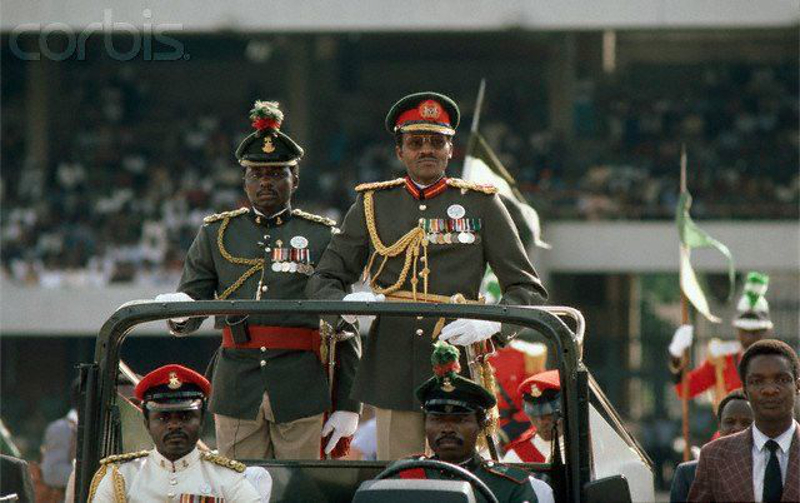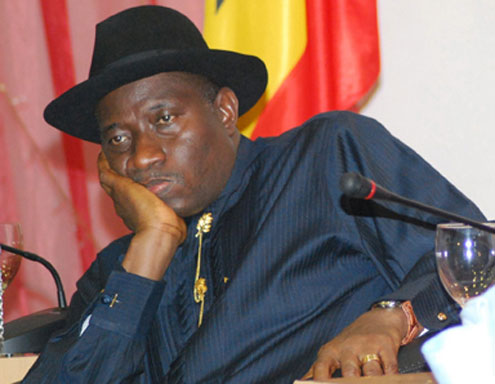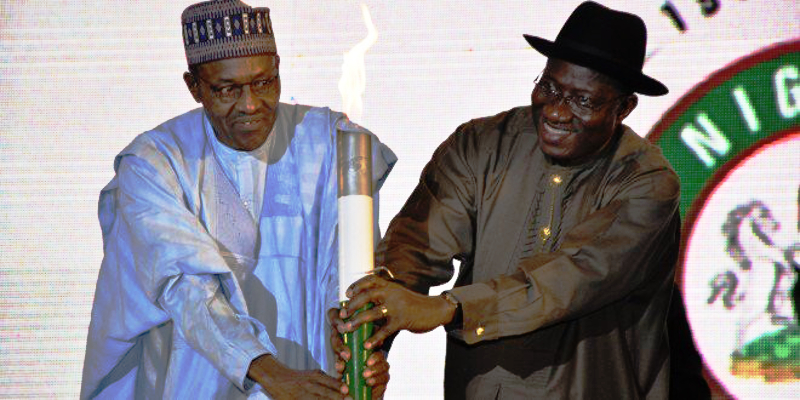[quote_box_center]Muhammadu Buhari (born 17 December 1942) is a Nigerian politician and a retired Major General in the Nigerian Army who ruled Nigeria from 31 December 1983 to 27 August 1985, after taking power in a military coup d’état. The term Buharism is ascribed to the Buhari military government. He also ran unsuccessfully for the office of President in the 2003, 2007 and 2011 elections. In December 2014, he emerged as the Presidential Candidate of the All Progressives Congress, for the 2015 elections. A native of Daura in Katsina State, Buhari is of the Fulani ethnic background.[/quote_box_center]
NIGERIA, Lagos – It was the late Chief Obafemi Awolowo who once said, in answer to the late Nnamdi Azikiwe’s assertion that we should forget our differences, that it was better instead for us to understand our differences, as a more sustainable path to nation-building. Awo’s argument was that it was difficult to wish away our differences because they did, in fact, exist and that, in the end, a man would be a good Yoruba man, or Igbo man or Hausa man first before identifying himself or being identified as a good Nigerian.
One couldn’t agree more with Chief Awolowo. For, every one of us, indeed, comes from a tribe – from President Goodluck Jonathan, Olusegun Obasanjo to Muhammadu Buhari.
The problem arises when, because of several factors, including lack of personal depth and appreciation of the demands of co-existence in a plural society, we allow our tribal sentiments to becloud our sense of duty and obligations to, and respect of, others with whom we share a common destiny as citizens of one country. It becomes even more tragic, for both the individual and country, if the one who has such limited understanding of life outside his or her tribal domain is an aspiring national leader.
That is the problem I find with the candidacy of APC presidential flag bearer, Major-General Muhammadu Buhari; the fact that, by actions and utterance, he seems to exhibit scant national sentiments. With all due respect, the man, in my view, is too much of a sectional hero, a self-righteous, haughty I-don’t-give-a-damn-about-others-and-what-they-think-about-me kind of guy, a poster child of Arewa irredentism who sees others as cultural and religious inferior for whom the desert (born-to-rule) princes on whom the good lord has imposed the task of superintending the sprawling giant in the sun, should harbour nothing but disdain.
The examples are legion – of how Buhari has demonstrated over time, in actions and words, that he lacks the sentiments of a national leader and the predisposition, even grooming, to work with others and treat them as equal partners in a plural setup such as ours.
Dr. Femi Aribisala eloquently captured what he called ‘Buhari’s crimes’ in his Tuesday column in Vanguard which ran under the broader headline ‘Time to disgrace the self-appointed godfather of the South-West.’ I will borrow a lot of the examples in that write-up.
But, first, let me start from the one I know very well. Gabriel Owoh and I were classmates and friends in Community Secondary School, Udi, Enugu State, way back in the late 70s and early 80s. His elder brother, the quiet, good looking Bartholomew Owoh used to come visiting and Gabe, as we used to call him, would call us his friends to come greet his brother.

Imagine, then, the anguish all of us, Gabe’s friends that is, felt when Buhari’s high-handed military government, acting on an obnoxious, retroactive law, snuffed the life out of the young man for drug trafficking, acting on the provision of an obnoxious, retroactive law!
It’s like making a law in 2016 to punish a crime committed this year, just to make so-called examples of three hapless young men who probably didn’t know what they were getting into. And you know why? Because Saudi Arabia after which Buhari wanted to model Nigerian law and jurisprudence, had already started beheading drug traffickers and the Buhari military junta wanted to assure the headquarters of world Islam that Nigeria was ‘on course.’
Alex Ekwueme was Vice President to Alhaji Shehu Shagari (the old man has, by the way, conducted himself rather admirably as former president and elder statesman). After he overthrew Shagari’s government, Buhari, in a most grotesque reversal of roles, sent Ekwueme who had no executive powers to award contracts or steal money, to Ikoyi maximum prison while Shagari was kept under house arrest in a government guest house in the same Ikoyi.
He sentenced Jim Nwobodo, Sam Mbakwe, then governors of Anambra and Imo states to hundreds of years in prison on charges of corruption that were not properly investigated. Similarly, he jailed cerebral Professor Ambrose Alli, then governor of Bendel State and Bisi Onabanjo of Ogun State; both of them never recovered from the ill-treatment meted out to them in prison by Buhari’s soldiers. He sent the late Chukwuemeka Odumegwu Ojukwu, who never held public office, to Kirikiri Maximum Prison where he was until the Babangida coup of August 1985. The late Michael Ajasin, the first executive governor of old Ondo State, was kept in prison even after they were discharged and acquitted by the same court set up by Buhari to try politicians for corruption.

Aribisala recalls that while Buhari jailed the legendary Fela Anikulapo-Kuti for ‘non-declaration’ of foreign currencies he had legitimately obtained for the upkeep of his band abroad, he conveniently allowed the Emir of Gwandu, a prince of the Caliphate, to bring in 53 suitcases whose contents were not declared to Customs, while a currency-change exercise was going on in the country.
“He did not just brutalise Chief (Olu) Awotesu (Shagari’s minister of state for agriculture who was detained for nearly two years without trial) and his family,” Aribisala further wrote. “He did the same to Tai Solarin, who was denied medication for his asthmatic condition while in Buhari’s gulag; Ayo Oyewunmi who became blind in Buhari’s detention and Busari Adelakun who died of chronic ulcer, complications developed in Buhari’s jail.”
He also recalls that Buhari’s Supreme Military Council (SMC), the highest military ruling body in the country had 16 members, comprising 11 northerners and 5 southerners including one Yoruba.
Unable to garner enough votes to defeat President Jonathan in the 2011 Presidential election, an angry Buhari vowed that the ‘gods and baboons will be soaked in blood.’ The post election violence in Northern Nigeria on account of Buhari’s transparent loss to Jonathan destroyed lives and property worth billions of naira. Needless to say, the incident again set the North back by many years.
At the outset of the war against Boko Haram, Buhari was quoted on several occasions as declaring that a ‘clampdown on Boko Haram was an injustice against the North.’ He was specifically quoted by Thisday Online thus: ‘Buhari: Military Offensive against Boko Haram, Anti-North’.
In 2001, in the heat of the Sharia crisis triggered by the ‘pure’ implementation of the Islamic law in Zamfara State following the cutting off of a thief, Jangebi’s hand as punishment, Buhari, a former head of state, reportedly told a seminar in Kaduna: “I will continue to show openly and inside me the total commitment to the Sharia movement that is sweeping all over Nigeria…God willing, we will not stop the agitation for the total implementation of the Sharia in the country…” Why would the promotion of Sharia law throughout secular, multi-religious Nigeria be the primary occupation of a former military head of state and an aspiring democratic leader, you would ask.
Other examples abound – of Gen. Buhari’s seeming rigid commitment to the cause of the North and Islam in Nigeria such that he appears unable to place himself over and above his primordial interests. As a multi-ethnic, multi-religious country, Nigeria requires a God-fearing leader who will not pander to his ethnic and or religious interests but will be firm in ruling over the country on the basis of equity, justice and fair-play.
Given such history of bias against people of other faiths and cultures in his official and private conducts, can Buhari be trusted to lead the plural Nigeria? At 72, a man is set in his ways. The question is, at 72, can Buhari change? As they say, ask the leopard.











Very insightful reading this about the upcoming Nigerian elections. I am glad people are watching because Goodluck Jonathan is planning things.
I have my reservations about Buhari but at the same time I hold doubts about Goodluck. I am wondering if I should bet against Luck or Buhari? One thing is for sure, Buhari is a megatron of a military man but he too is old.